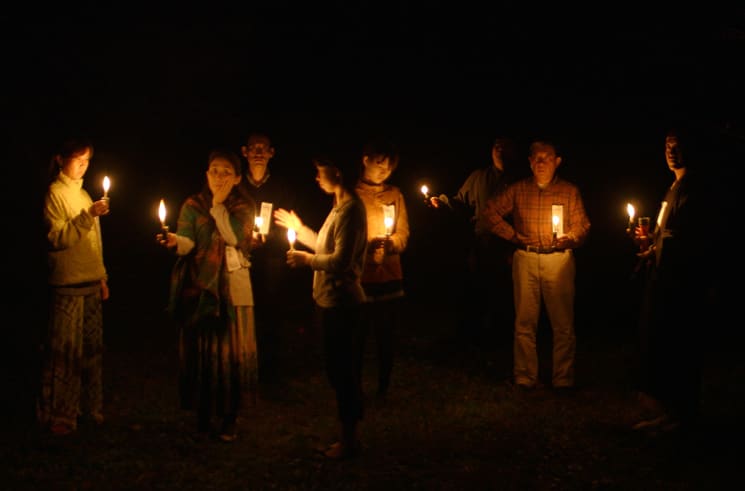Suicide often takes a toll on the lives of the loved ones left behind, but what about the people who hear the touch-and-go threats of the suicidal on a day-to-day basis?
Following a former Japanese punk rocker turned rural Buddhist suicide counsellor, Emmy-winning filmmaker Lana Wilson's The Departure is a gripping, one-of-a-kind doc about one man's single-handed attempts to save the lives of those around him, even though doing so puts him closer and closer to death.
Wilson is given unprecedented access to her subject and the people he treats, learning about his early days as a reckless high school student and "midnight wanderer" (a group of Japanese adolescents living for the night with a cool detachment), and the motorcycle accident, as well as the death of friends and family, that allowed him to see the importance of life.
Slow and sombre to start, things get really interesting (and, truthfully, a hell of a lot sadder) once we learn about her topic's fading health caused by near consistent drinking, smoking and stress, and what that means for him and his family (the nurse who helped him recover in the hospital became his wife and they've since had a son).
At a little under 90 minutes, The Departure doesn't provide any sort of happy ending, nor any happiness at any moment really throughout the film. Instead, it focuses on the overwhelmingly depressive nature of existence in a modern, emotionally repressed society, with only glimmers of hope shining through occasionally.
Everything sort of comes full circle in the end, and not in a traditionally satisfying sort of way. But that doesn't make it any less fascinating or life-affirming, despite its weighty focus.
Following a former Japanese punk rocker turned rural Buddhist suicide counsellor, Emmy-winning filmmaker Lana Wilson's The Departure is a gripping, one-of-a-kind doc about one man's single-handed attempts to save the lives of those around him, even though doing so puts him closer and closer to death.
Wilson is given unprecedented access to her subject and the people he treats, learning about his early days as a reckless high school student and "midnight wanderer" (a group of Japanese adolescents living for the night with a cool detachment), and the motorcycle accident, as well as the death of friends and family, that allowed him to see the importance of life.
Slow and sombre to start, things get really interesting (and, truthfully, a hell of a lot sadder) once we learn about her topic's fading health caused by near consistent drinking, smoking and stress, and what that means for him and his family (the nurse who helped him recover in the hospital became his wife and they've since had a son).
At a little under 90 minutes, The Departure doesn't provide any sort of happy ending, nor any happiness at any moment really throughout the film. Instead, it focuses on the overwhelmingly depressive nature of existence in a modern, emotionally repressed society, with only glimmers of hope shining through occasionally.
Everything sort of comes full circle in the end, and not in a traditionally satisfying sort of way. But that doesn't make it any less fascinating or life-affirming, despite its weighty focus.
